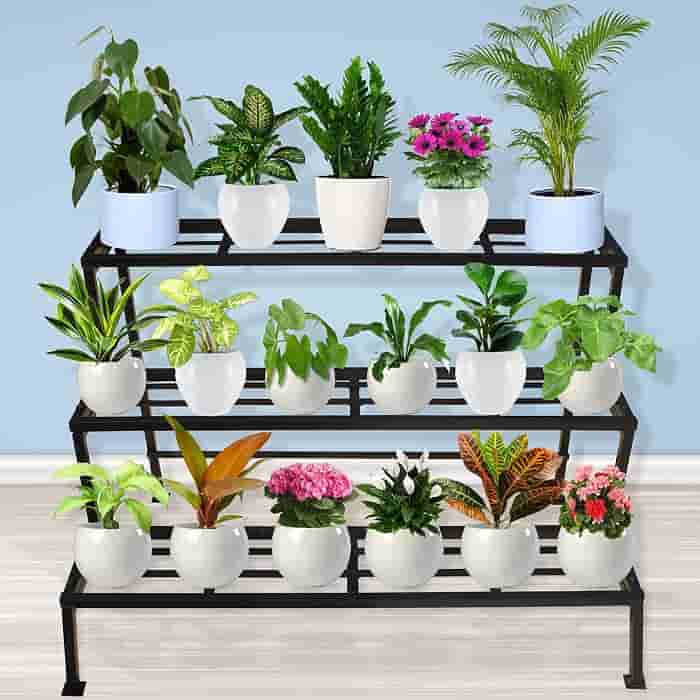To maintain healthy plants beyond just water and sunlight, plants also need essential nutrients. Organic fertilisers offer a natural way to feed plants sustainably. They will nourish the growth of the plant, promote the richness of soil to be developed further, and support the environment. Here, we discuss some common types of organic fertilisers for indoor and outdoor plants.
Why Choose Organic Fertilisers?
Organic fertilisers are from natural sources. The nutrients slowly leak into the ground, and then these plants absorb them for a longer period compared to chemical fertilisers. Whereas chemical fertilisers only feed the soil, organic fertilisers enrich the health of the soil. So, it gives stronger roots, greener leaves, and healthier plants generally.
Types of Organic Fertilisers
There are many types of organic fertilisers. Each has different benefits for your plants. So, let’s discuss it in detail.
- Compost
Compost is decomposed organic material. Compost is full of nutrients for the plants. Additionally, compost also makes good soil and enhances retention. You can create compost at home by using any kitchen scraps and garden waste. All you have to do is mix vegetable peels, coffee grounds, and dry leaves. After some time, they break down into nutrient-rich soil. Therefore, apply compost around plant roots but avoid stem contact. It is excellent both for indoor and outdoor plants.
- Manure
Manure is a well-known organic fertiliser. It’s a natural item created from animal excrement. Nonetheless, refrain from applying fresh manure to plants. It might be overly intense and could harm roots. Opt for aged manure, as it provides nutrients at a slower pace. Fertiliser enhances soil structure, aiding the deep growth of plant roots. Moreover, it fosters beneficial microbial activity in the soil. Fertiliser is most effective when applied to outdoor gardens. For indoor plants, apply it in moderation or choose compost.
- Bone Meal
Bone meal is made from ground animal bones. It is a very good source of phosphorus, which will encourage root growth and flowering. The fertiliser is ideal for flowering plants whether indoors or outdoors. However, simply sprinkle it on the soil around plants. Be sure not to overdo it, though, as some of the plants can be scorched with too much phosphorus. Use only what the package indicates should be used.
- Fish Emulsion
Fish emulsion is a liquid fertiliser with fish waste as the main component. The ingredients include nitrogen, phosphorus, and potassium. These three nutrients encourage dense greenery and blooming flowers. Because of its quick reaction, it will be absorbed quickly into the plants. For applying the emulsion, follow the mixture with water according to the instructions. Pour the liquid over the soil for the roots. With a very strong smell, the application of fish emulsion should be done outdoors. For indoor plants, dilute it more to reduce the odour.
- Seaweed Extract
One of the primary inputs among organic gardeners is seaweed extract. Seaweed extract contains several minerals which set off the boom in the garden. Therefore, Such a fertiliser is best suited for young seedlings as it makes them yet stronger and robust roots to grow fast. It’s available as a liquid; hence, mix it with water and apply it to the soil. It can be used for both indoor and outdoor plants and helps repair soil texture over time.
- Worm Castings
Worm casting, or vermicompost, is made from the waste created by earthworms. Rich in beneficial microbes and nutrients, worm castings improve the soil structure and moisture retention. Since there’s no smell, it’s perfect for indoor use. Additionally, add a mix to potting soil or sprinkle the worm castings around plants. These are also in great demand for both indoor and outdoor plants.
Choosing the Right Organic Fertilizer for Your Plants
Each plant possesses distinct nutritional requirements. Consequently, think about the kind of plants you are cultivating. Blooming plants gain from fertilisers high in phosphorus, such as bone meal. Foliage plants require nitrogen-abundant choices such as fish emulsion. For succulents, apply compost or seaweed extract in moderation. Furthermore, always verify the nutrient content of the fertiliser before application. It assists you in supplying the appropriate nutrients without excessive fertilisation.
How to Apply Organic Fertilisers?
Each fertilizer has a specific process of application. Read the product label carefully. Moreover, do not fertilize more than necessary so that it badly kills plants. Spread compost evenly around plant roots. When using liquid fertilizers, dilute them in the quantities that are recommended. Pour them right into the soil to avoid leaf burn. Outdoor plants require more frequent fertilizing than indoor ones. This is because rain and sunlight deplete soil nutrients faster outdoors.
Where to Buy Organic Fertilisers?
Most nurseries have a variety of organic fertilisers. The best plant nursery in indore, you might be able to get compost from your local region.
Additionally, the biggest nursery in Indore will be able to supply you with all organic products provided for your gardening needs.
If you are looking for indoor and outdoor plants then check out an indoor outdoor plants nursery in Indore. You can usually find experts there to guide you on what fertilisers would do best for your plants.
Benefits of Using Organic Fertilisers
Organic fertilisers encourage plant well-being and responsible gardening. Organic fertilisers release nutrients slowly, which helps prevent nutrient loss. Furthermore, it also improves the texture of soil and healthily develops the roots. The use of organic fertilisers also reduces chemical pollution. This translates into a cleaner, healthier environment, which benefits everybody. However, the use of organic fertilisers will prove beneficial both to you and your plants as well as the planet.
Final Thoughts
Organic fertilisers are such an easy and efficient means of caring for plants. There are choices like compost, manure, and seaweed extract that you could use to provide your plant with nutrients. Moreover, by using the correct organic fertiliser, you give a boost to your plant, but you should apply all of these according to the recommended usage for each type, and you will surely see your plant growing healthy.










Recent Comments